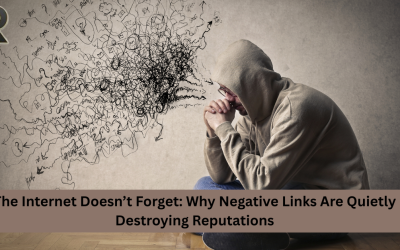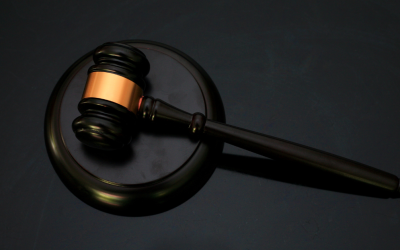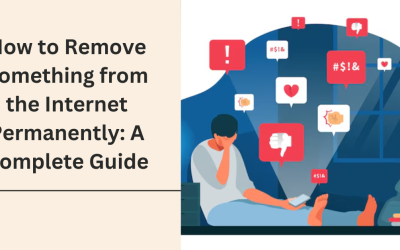Removing Legal Records from Leagle.com Website—Why It Matters
In today’s digital age, your online presence plays a pivotal role in shaping personal and professional opportunities. Legal records on platforms like Leagle.com can often appear prominently in search engine results, potentially exposing sensitive information that may harm reputations or hinder growth. Understanding the importance of removing such records is the first step towards regaining control over your online narrative.
Table of Content
- What-Is-Leagle.com?
- Why-Is-Removing-Legal-Records-from-Leagle.com-Necessary?
- How-to-Remove-Legal-Records-from-Leagle.com-Website?
- How-We-Can-Help-at-SecureOnlineReputation.com?
- Why-Choose-Us?
- Take-Control-of-Your-Online-Reputation-Today
- Common-Questions-About-Legal-Records-Removal
What Is Leagle.com?
Leagle.com is an online repository of court opinions and legal records. It provides access to public court documents and case law from various jurisdictions, making legal information easily available to the public. While this transparency is beneficial for legal professionals and researchers, it can have unintended consequences for individuals whose personal legal records appear on the platform.
Key details about Leagle.com:
- Purpose: The platform is designed to make legal records and case law accessible for educational and professional purposes.
- Content: Includes court opinions, legal briefs, and other public legal records.
- Impact: With a large database of records, Leagle.com ranks high on search engines, meaning its records are often among the top results when someone’s name is searched.
Why Is Removing Legal Records from Leagle.com Necessary?
Legal records, although public, can contain personal details or outdated information that doesn’t reflect your current circumstances. These records may include:
- Dismissed cases or wrongful accusations: Even if the case has been resolved in your favor, the lingering record can lead to misconceptions.
- Sensitive personal information: Details like your name, address, or other identifiers may be visible to anyone online.
- Professional setbacks: Employers, clients, or business partners researching your background might misconstrue legal records, impacting opportunities.
By addressing these concerns, you can:
- Protect your privacy.
- Safeguard your reputation.
- Ensure that accurate, relevant information represents you online.
How to Remove Legal Records from Leagle.com Website?
Removing legal records from Leagle.com and search engine results requires a strategic approach. While it’s not always straightforward, there are actionable steps you can take:
1. Request Content Removal from Leagle.com
- Understand their removal policy: Visit Leagle.com to review their guidelines for requesting record removal.
- Submit a formal request: Draft a clear, concise message explaining why the record should be removed. Include supporting documents if applicable (e.g., proof of case dismissal).
2. Leverage Search Engine Removal Tools
- Google’s Removal Tools: If the record no longer exists on Leagle.com but still appears in search results, you can use Google’s URL removal tool to de-index the page.
- Legal Requests to Search Engines: For certain cases involving privacy laws, you can submit a legal removal request to Google.
3. Suppress with Positive Content
- Create new content: Publish blogs, articles, or profiles that highlight your achievements and expertise.
- Optimize existing content: Use SEO techniques to ensure your positive content ranks higher than the legal records.
4. Seek Professional Help
- Consult experts: Removing sensitive records from online platforms often requires technical and legal expertise.
How We Can Help at SecureOnlineReputation.com?
At SecureOnlineReputation.com, we specialize in helping individuals and businesses take control of their digital footprint. Our services are tailored to address your specific needs, ensuring effective and lasting solutions.
Our Process
- Assessment: We analyze the legal records on Leagle.com and evaluate their impact on your online reputation.
- Strategic Planning: Based on the assessment, we develop a customized plan to remove or suppress the records.
- Execution:
- Submitting removal requests to Leagle.com and search engines.
- Creating and optimizing positive content to enhance your digital presence.
- Monitoring: We continuously track your online reputation to ensure unwanted content stays removed.
Why Choose Us?
- Expertise: Our team understands the intricacies of online reputation management and legal record removal.
- Tailored Solutions: We offer personalized strategies that align with your goals.
- Ongoing Support: Beyond removal, we provide long-term solutions to maintain a positive online reputation.
- Privacy: We prioritize your privacy. Any information you share with us, including your name and case details, will remain confidential and will not be leaked under any circumstances.
Take Control of Your Online Reputation Today
Don’t let outdated or misleading legal records from Leagle.com define your online presence. Contact SecureOnlineReputation.com to discuss your concerns and explore the best strategies for reclaiming your digital identity. Together, we can ensure that your online reputation reflects your true story.
Common Questions About Legal Records Removal
1. Can all legal records be removed?
Not always. Records hosted by government websites may be challenging to remove but can often be suppressed.
2. How long does the process take?
Depending on the complexity, removal can take 2-6 weeks on average.
3. Is the process legal?
Yes, we adhere to all applicable laws and follow ethical practices to achieve results.
FAQ’s
1. How can I remove a post from leagle.com?
To remove a post from leagle.com, you can contact the website directly with a formal request, citing any privacy concerns, inaccuracies, or outdated information. In some cases, legal assistance may be required to support your request.
2. How do I remove posts from legal websites?
Removing posts from legal websites involves contacting the website administrators and submitting a removal request. You may need to provide documentation to prove that the information is incorrect, irrelevant, or violates your privacy rights.
3. How can I request removal from Whitepages?
To request removal from Whitepages, visit their opt-out page, enter your details, and follow the verification process to confirm your identity. Once verified, your record will be removed from their database.
4. How do I remove a lawsuit from the internet?
Removing a lawsuit from the internet requires identifying the source (e.g., court websites, news platforms) and submitting a removal or suppression request. For public records, you may need to petition the court to seal or expunge the record.
5. How can I remove a post from Google?
Submit a request using the Google Legal Removal Request Form. Google evaluates requests based on privacy, defamation, and outdated information policies.
6. How do I remove posts from Google search results?
You can either request the website hosting the content to take it down or use the Google Legal Removal Request Form. Alternatively, SEO suppression techniques can help push the results further down the search rankings.
7. What is a Google legal removal request form?
This form allows individuals to request the removal of content from Google’s search results based on legal concerns such as defamation, privacy violations, or outdated information.
8. How can I remove a link from a website?
To remove a link from a website, contact the website owner or administrator and submit a formal request. Include reasons such as privacy infringement or inaccuracies in your appeal.
9. How do I remove my information from public records?
You may need to file a request with the relevant government agency or court to seal or expunge the record. For online databases, contact the website and request removal.
10. What is a removal request?
A removal request is a formal appeal made to a website or platform asking them to take down specific content, such as legal records, personal information, or outdated posts.
11. How can I get something removed from the internet?
Identify the source of the content and submit a removal request to the hosting platform. For persistent issues, professional reputation management services can help.
12. How can I remove legal records from Google Search?
Start by contacting the website hosting the legal record to request its removal. If unsuccessful, submit a legal removal request to Google to delist the link from its search results.
13. How do I remove legal records from the internet?
To remove legal records, you may need to contact multiple platforms, including legal websites and search engines. Filing a court petition to seal or expunge records may also be necessary.
14. How do I remove leagle.com court records from search engine results?
Request leagle.com to take down the record or submit a legal removal request to Google to delist the content from search engine results.
15. How can I remove court records from Google Search?
You can file a legal removal request with Google if the court records violate privacy policies or are outdated. Alternatively, work with a legal professional to explore expungement options.
16. How do I remove a judgment from public records?
Judgments can sometimes be removed by filing a motion with the court to vacate or seal the record. If successful, you can then request the removal of the judgment from online sources.
17. Can I remove court records from the internet?
Yes, but the process varies depending on the source. For government websites, petitioning the court may be necessary. For private platforms, a formal removal request can often suffice.
18. How do I remove a court case from Google Search?
Contact the website hosting the case details and request removal. If unsuccessful, use the Google Legal Removal Request Form to delist the case from search results.
19. How can I remove a judgment from court records?
To remove a judgment, you may need to petition the court to vacate or expunge it. Once removed, you can request the deletion of online mentions.
20. How do I remove court records from Google?
File a removal request with Google, citing privacy concerns or outdated information. If the record is legally sealed, provide documentation to support your case.
21. What is a legal records search?
A legal records search involves finding public records, such as court cases or judgments, available online through legal websites, government databases, or search engines.



